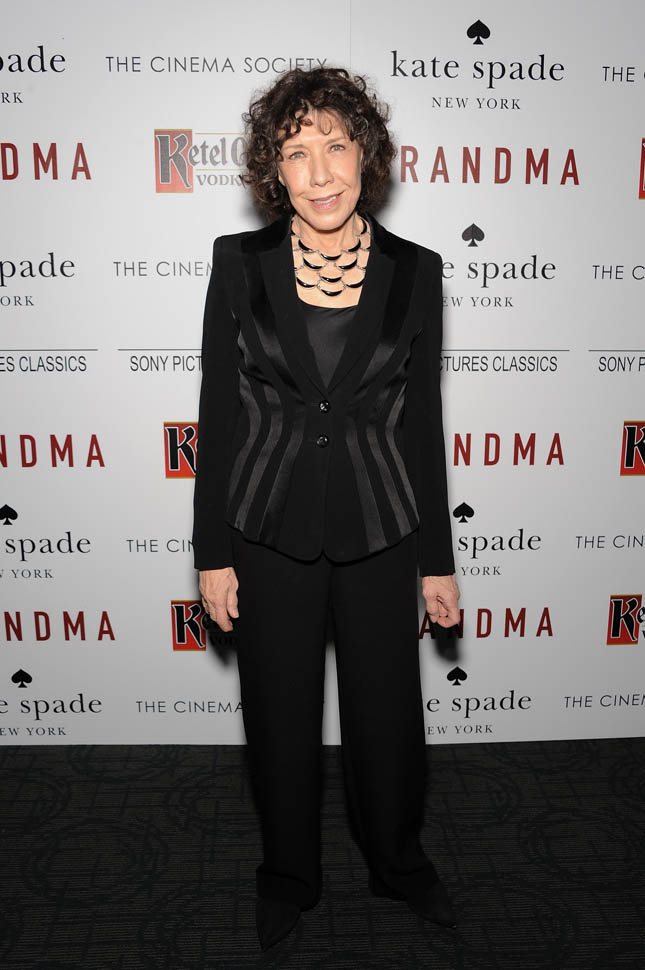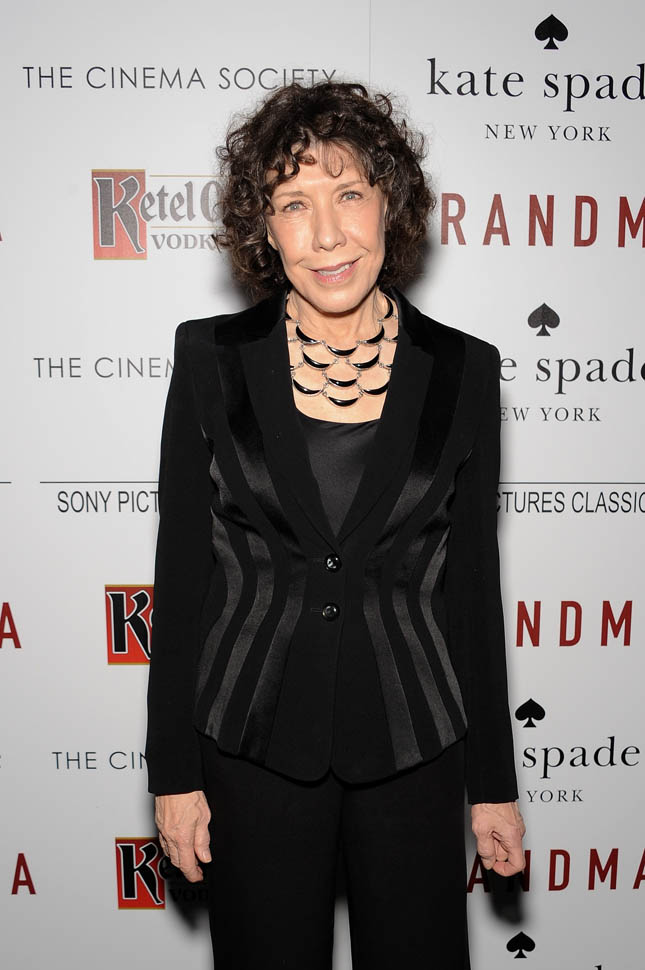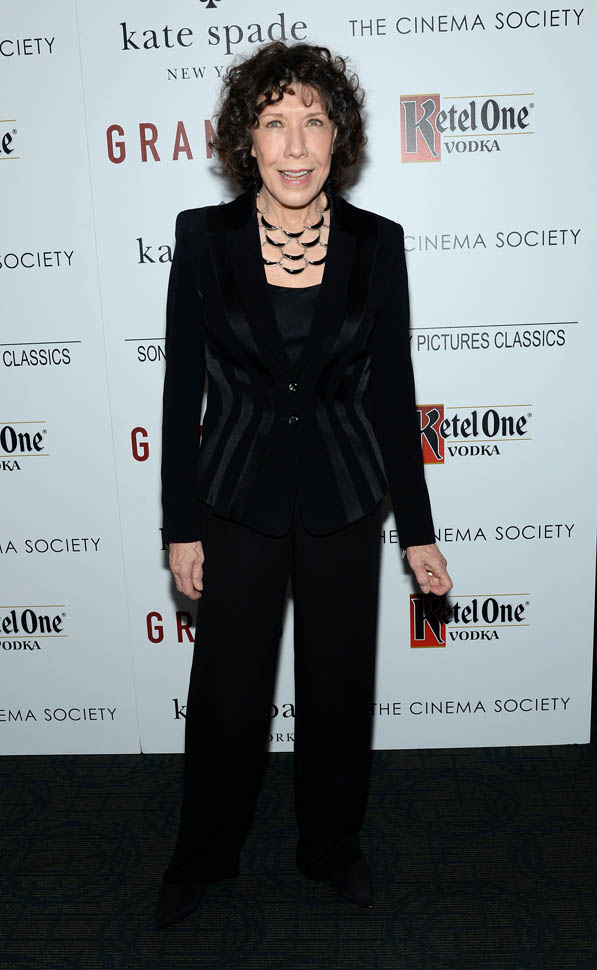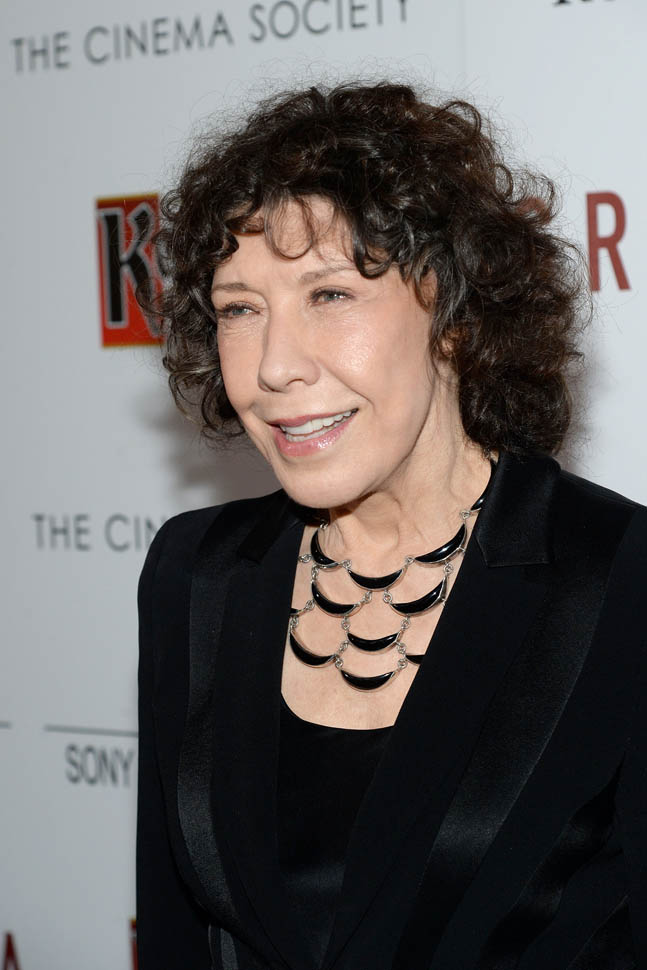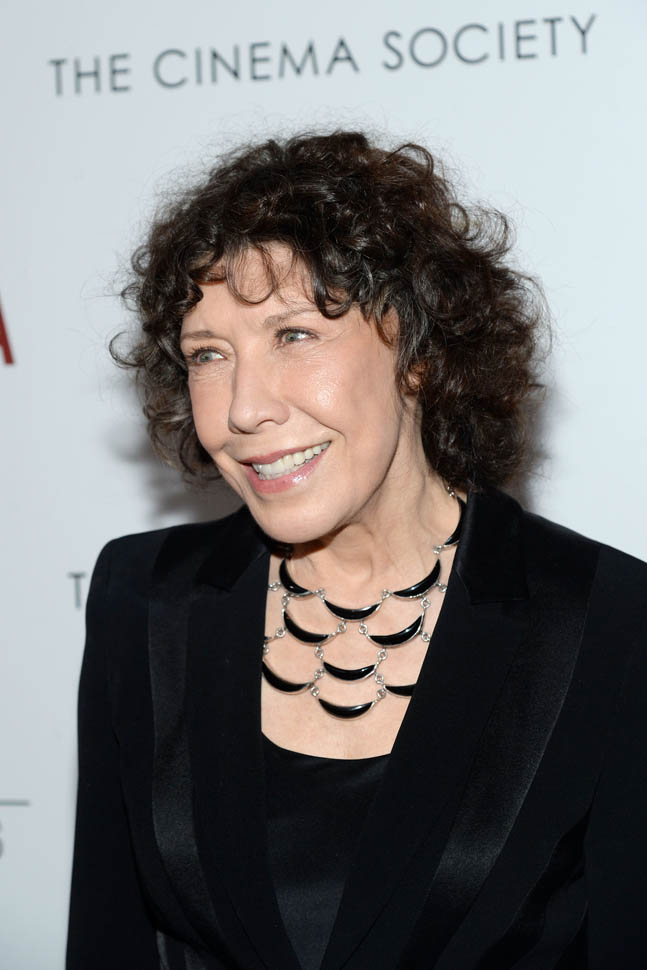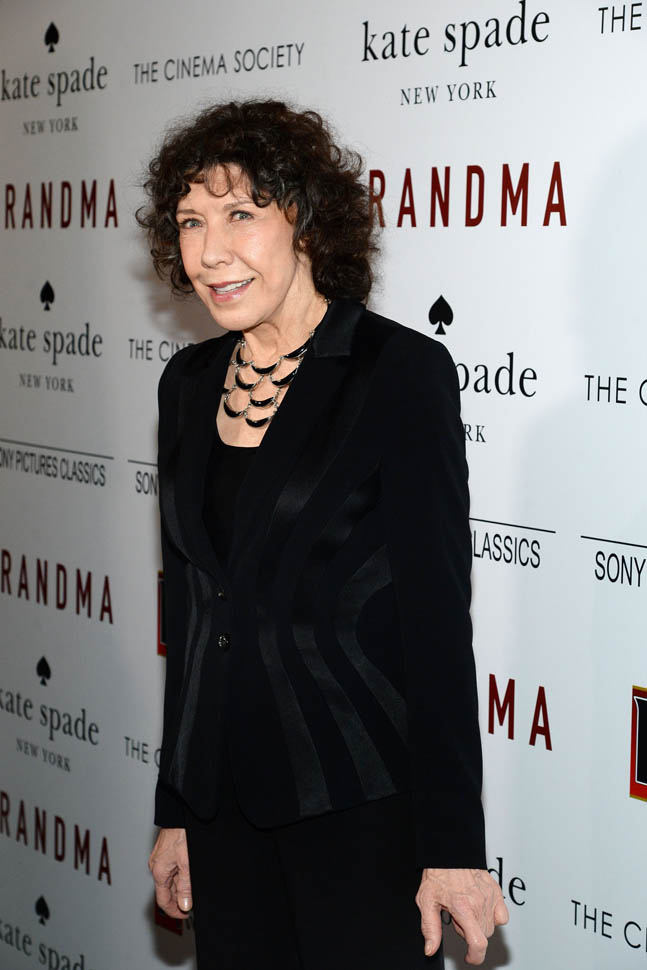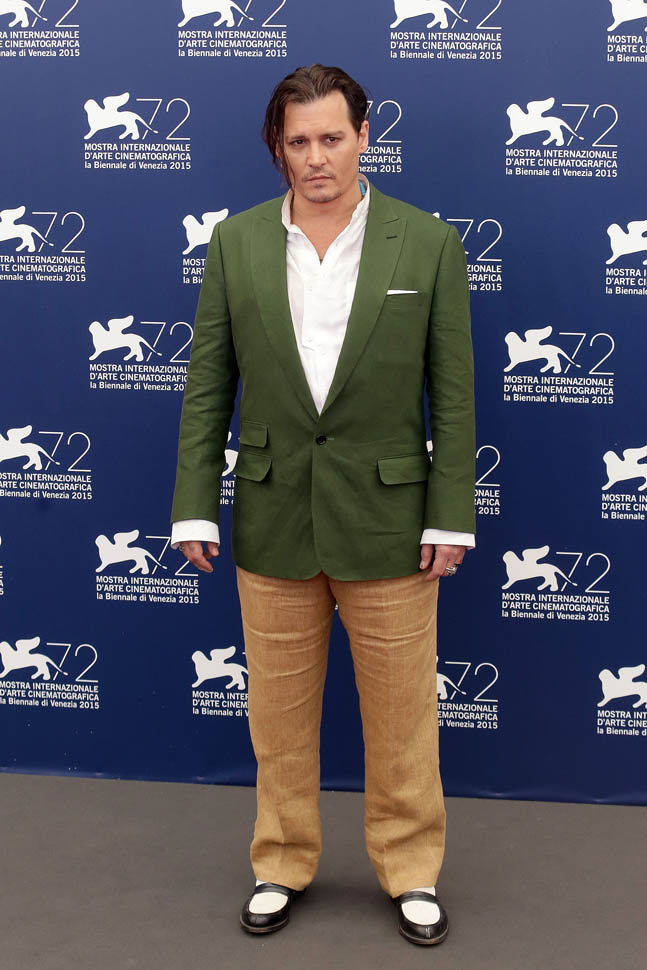Lily Tomlin is a national treasure


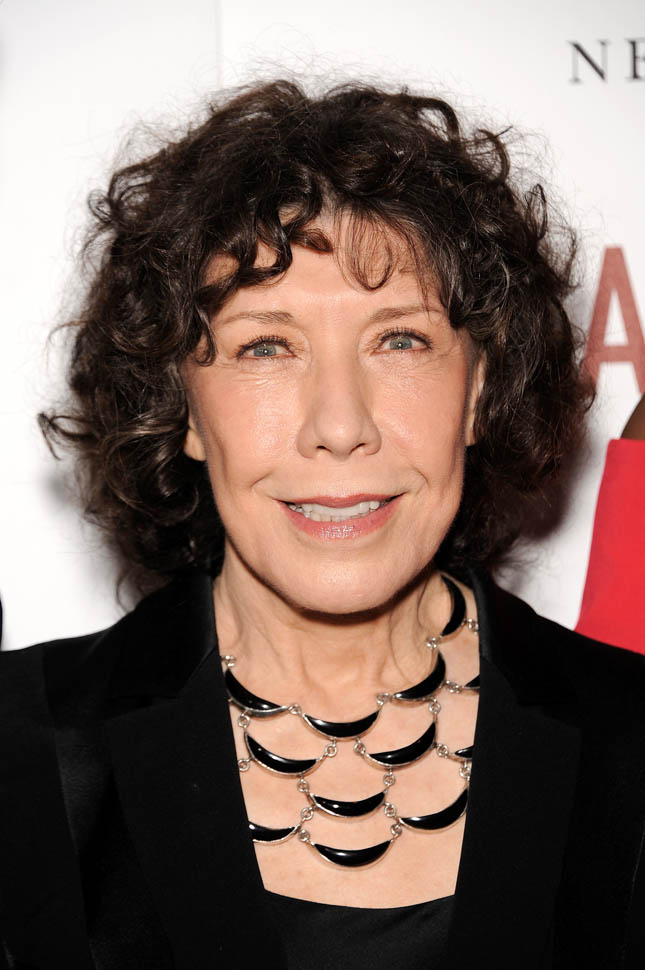
She was Tina Fey before Tina Fey was Tina Fey, and she’s every bit as funny today as she was on Laugh-In in the 1970s. Maybe even funnier, because while she was always a bold performer, she’s now levelled up into that mature-lady boldness that comes with reaching the age at which you are no longer required to give a sh-t. It’s not like she ever stopped working, but she’s come back to the main stage recently with her Netflix series Grace and Frankie—co-starring Jane Fonda, who also has no f*cks left to give—and now Grandma, her first leading role in a feature film since 1988. How is that possible?! It’s crazy that Tomlin hasn’t anchored a movie since Big Business, but this is the case. Grandma is her long overdue return to leading lady status.
It’s also a pretty good movie. Written and directed by Paul Weitz (About a Boy), who undoubtedly conceived the role of Elle specifically for Tomlin, Grandma is a multi-generational comedy/drama that’s heavier on comedy than drama but still hits some really resonant emotional notes. It takes place over just a few hours as Elle and her granddaughter, Sage, drive around Los Angeles trying to scrounge up the money for Sage to get an abortion. Like Obvious Child, Grandma doesn’t moralize over this, though there are enough digs at the expense of the procedure, the dumbassness of teenagers who aren’t getting comprehensive sex education, and the time crunch enforced by a restrictive healthcare system that this movie is not going to play in red states AT ALL. That’s a shame, because Sage’s abortion is just the Macguffin that sets the plot in motion—the story is all about Elle.
This film belongs to Tomlin from top to bottom, but ever a generous performer, there are a number of stand-out supporting performances as well, most notably from Marcia Gay Harden as Judy, Elle’s daughter; Sam Elliot as Karl, Elle’s ex-husband; and Judy Greer as Elle’s freshly-dumped lover, Olivia. When we meet Elle she’s recently bereaved after the death of Vi, her long-term partner with whom she raised her daughter, and it seems that grief is exacerbating Elle’s already prickly personality. Those three characters give us the best view of Elle as someone who is charismatic and fascinating, but also exhausting and so fiercely independent as to be alienating. An especially stand-out scene is the one between Elle and Karl, who even four decades later still has a lot of feelings around his ex-wife. Elliot is TREMENDOUS in his one scene, which is easily one of the best moments in cinema this year so far.
Running at a lean eighty minutes, Grandma is basically a road movie that unfolds in a series of vignettes as Elle and Sage visit different people trying to get together the money Sage needs (the reason Elle doesn’t have it is a bit twee and only Tomlin with her no-bullsh*t delivery can sell it). Some of these vignettes are stellar, like the scene with Karl or the one in which Elle encounters Olivia. The scenes with Harden are also top-notch, and it’s a credit to both Harden’s performance and Weitz’s writing that Judy is a successful, ambitious career woman who manages to express disappointment in both her mother and daughter without ever sinking into shrewishness.
It’s kind of a bummer, then, that the whole movie doesn’t stand up to its best parts. Nat Wolff (Paper Towns) stars as Sage’s loser baby daddy, Cam, and it’s not that he’s doing anything wrong, it’s just that he doesn’t come close to matching the energy of Elliot, Harden, or Greer. It doesn’t help that Weitz’s direction can sometimes be a little stiff, which is especially noticeable in the already downbeat scene with Cam. No one in that scene seems to know what to do with themselves, except for Tomlin, who powers through it with bemused force, which works for Elle’s general disbelief at the stupidity of teenagers today. It’s not a dealbreaker, though, as Grandma is overall a funny, thoughtful, occasionally sad film about several generations of women in a family trying to deal with one another, anchored by Lily Tomlin’s fantastic performance.

